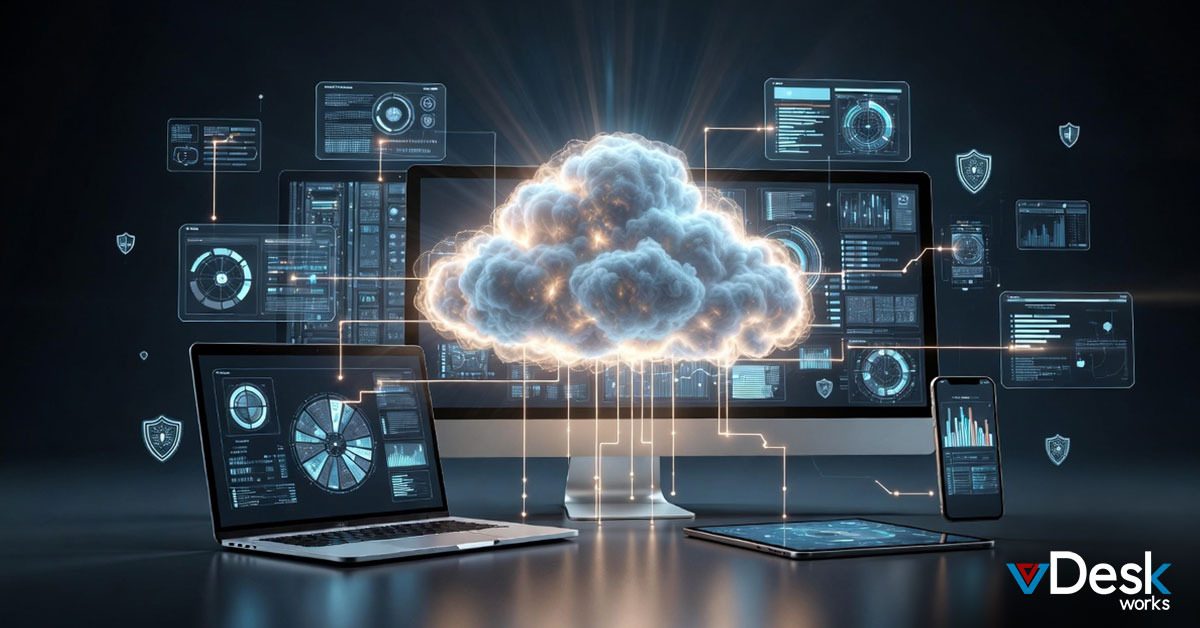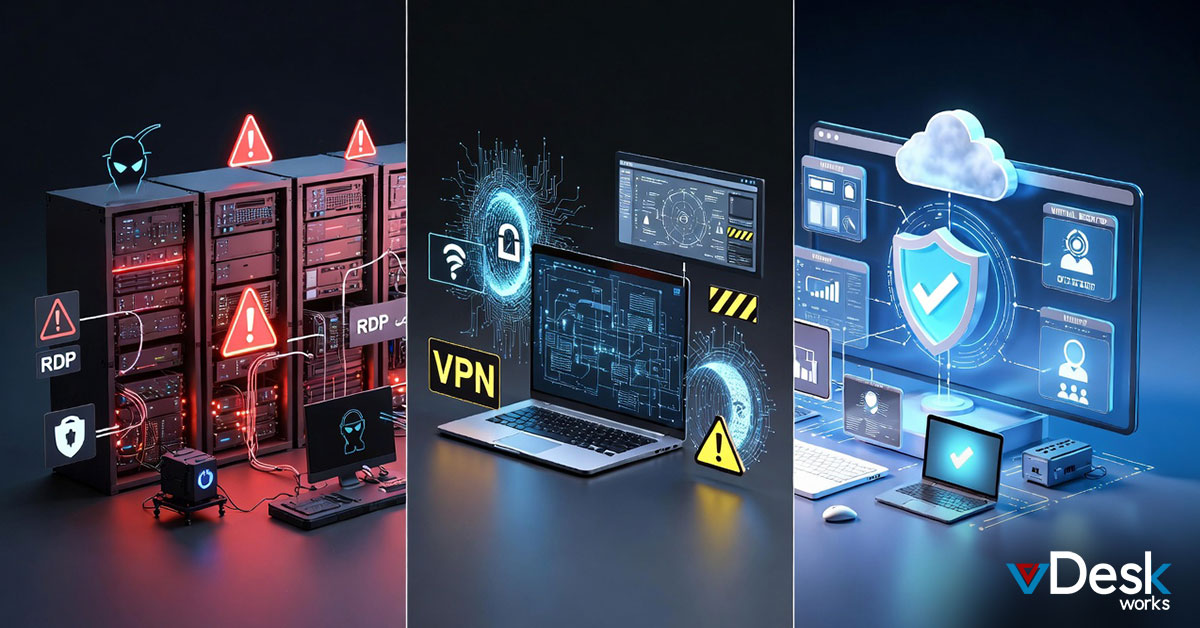The workforce is more mobile than ever. Many companies allow employees to work from home permanently or have hybrid models where workers only come into the office a couple of days a week. To adapt to these more flexible working schedules, organizations have started to use virtual PCs. This post will go over what virtual PCs are, the industries that use these systems, and the benefits that organizations can gain from using them.
What is a Virtual PC?
A virtual PC is a computing program that allows users to access their desktop environment from any device with an internet connection. The flexibility of virtual PCs makes them ideal for remote and hybrid work environments. Virtual PCs are more secure than traditional computing environments since data is stored on a remote cloud server instead of the endpoint device. There are many virtual desktop providers that organizations can use, such as vDesk.works, Amazon WorkSpaces, Ace Cloud Hosting, Citrix, and Dizzion.
What Industries Use Virtual PCs?
Various industries can benefit from using virtual PCs. For example, the healthcare sector can use virtual desktops to quickly and securely access patient information. Schools and universities can use virtual desktop solutions to allow students to access online classes and work on group projects. Other industries like marketing and accounting can use virtual PCs to store and access project information.
Benefits of Using Virtual PCs
There are many benefits that companies can gain from implementing virtual PCs into their workforces. Seven of these benefits will be explained in more detail below.
1. Allow for More Flexibility
One of the main reasons businesses should use virtual PCs is that they allow for more flexibility. Users can access their virtual PCs on desktop computers, laptops, tablets, and smartphones, this allows for users to work on projects and tasks from any location. Some virtual PC providers like vDesk.works are device-agnostic, which allows users to use any type of software or application on any type of device. For example, users can work on a Windows desktop while accessing the system from a MacBook.
2. Improves Productivity
The use of virtual PC solutions can help improve employee productivity. Since virtual PCs can be accessed from any device, users can easily work on projects and tasks while traveling or waiting in line at the coffee shop. Another way that virtual PC systems can improve productivity is that some providers allow managers to monitor user and device activity. For example, vDesk.works includes a productivity suite that monitors activity such as websites visited, applications used, mouse clicks, keystrokes, and time spent on tasks. Managers should look for a virtual desktop provider that includes such productivity measures so they can know whether or not remote workers are being productive throughout the day.
3. Increase Security Measures
Organizations can increase their security measures when they use virtual PCs. Only authorized users are able to access the virtual PC server. if a user’s device is lost or stolen, the device’s access to the server can be removed. Company owners and managers should look for a virtual PC provider that includes security measures like disaster recovery plans, multi-factor authentication, single sign-on measures, and firewalls. Many virtual PC solutions are compliant with security protocols like HIPAA, PCI, and GDPR.
4. Increases Scalability
Another benefit businesses can gain from using virtual PC systems is the increased scalability they offer. Scalability allows managers and administrators to easily add or remove users and devices from the central server as needed. Scalability is helpful for businesses that use the services of freelancers, contractors, or temporary workers.
5. Helps Save on Costs
Virtual desktop solutions can help companies save on costs. First of all, when businesses implement the use of virtual PCs, they won’t have to spend the costs on supplying devices to employees. Instead, workers can bring their devices from home. Also, many virtual desktop providers offer assistance in the case of technical difficulties. This reduces the need to have an extensive IT team in the office. Furthermore, virtual PCs use less computing power than traditional computing environments, which can lower the organization’s electricity bills.
6. Reduced Downtime
Since many virtual PC providers provide support, it can lead to reduced downtime. Users don’t have to worry when they run into issues since the virtual desktops are able to be restored quickly.
7. More Environmentally Friendly
Another reason that companies should use virtual PC solutions is that they are more environmentally friendly than regular computers. Since virtual PCs use less computing power and cause fewer carbon emissions from data centers, they are better for the environment.
As the decade progresses, more businesses will adopt the use of virtual PC solutions. Companies of all sizes and industries can benefit from using virtual PCs. Some of the benefits of using virtual PCs include allowing for increased flexibility, improving employee productivity, increasing security, increasing scalability, reducing costs and downtime, and being better for the environment. Therefore, virtual PCs are beneficial for any company.
There are many virtual desktop providers available on the market. Before making a decision, managers should take advantage of free trials and online demos to help them make a decision. One of the most reliable virtual PC providers is vDesk.works. vDesk.works has provided virtual PC solutions to companies since 2014. To learn more about vDesk.works, visit www.vdeskworks.com/.

 Jerry Clark
Jerry Clark
















